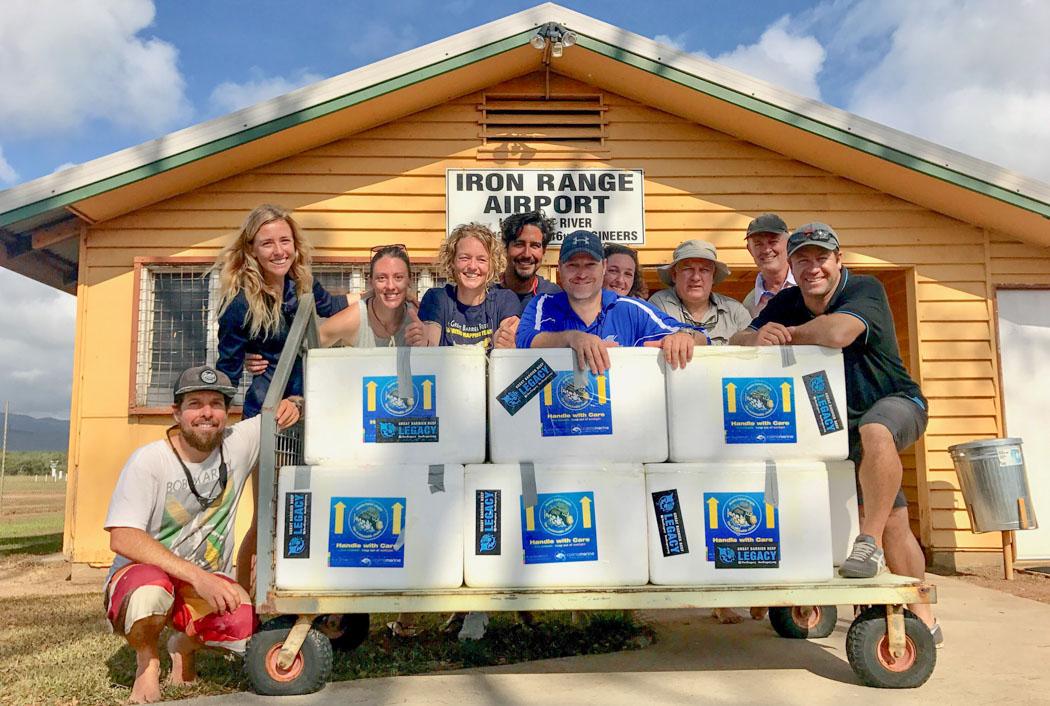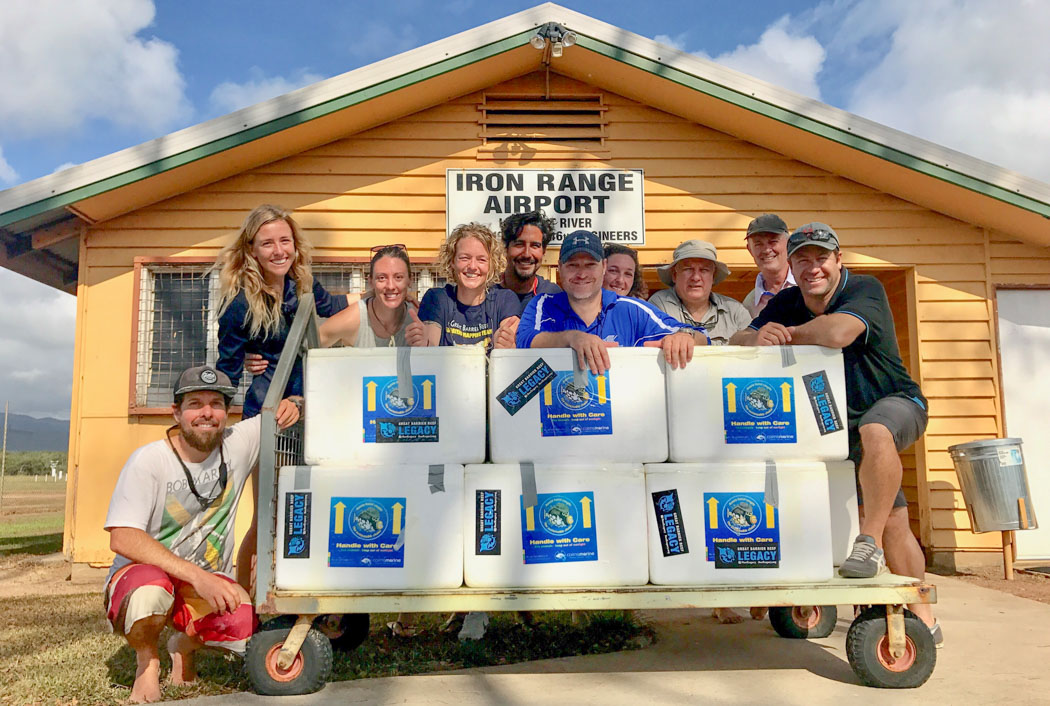Coral bleaching survivors, which may hold the answers to restoring reefs, will make a rare flight from Queensland’s far northern Great Barrier Reef to Townsville today.
Australian Institute of Marine Science (AIMS) researchers are among a group of scientists taking part in a GBR Legacy trip in the hope of finding surviving coral from the most severely heat stressed reefs off the northern cape.
AIMS coral biologist Dr Neal Cantin said Queensland’s far northern corals, which had lived through two serious bleaching events in 2016 and 2017, may help us understand how to grow new reefs.
“Some of the corals we have found alive on these damaged reefs are ready to reproduce and so we are flying up to 14 of these coral colonies to the AIMS National Sea Simulator where we hope they will breed and we can study them further,” Dr Cantin said.
Smiles all 'round from the Great Barrier Reef Legacy expedition scientists. The corals in these boxes will be flown from the Lockhardt River airport to the National Sea Simulator where they will be crossbred with more southern corals to investigate assisted gene flow. Image courtesy of GBR Legacy.
The 450kg cargo of coral and seawater was carefully packaged and loaded on to a Cessna at Lockhart River this morning, for a chartered flight to Townsville.
AIMS senior research scientist Dr Line Bay said their science would test whether surviving corals from recent bleaching naturally adapted to warmer reef temperatures, and if they could produce more heat-tolerant young.
“It’s rare that we fly coral by plane but the area is so remote and we have to get these corals to the National Sea Simulator quickly to give them best chance at spawning and survival,” Dr Bay said.
Dr Bay said the research approach called assisted gene flow, involved moving surviving heat-tolerant corals from northern areas, to central Great Barrier Reef reefs where warmer water temperatures have caused bleaching.
“This technique proposes to improve the overall heat tolerance of local coral populations, to help buffer the reef against future bleaching events caused by warmer-than-normal water temperatures,” she said.
GBR Legacy expedition co-ordinator Dr Dean Miller said the far northern trip was a collaboration with some of the best researchers in the world studying the effects of climate change on corals and reefs.
“Working together is the only way forward and so this synergy between our non-profit organisation, the tourism industry, and AIMS is the first of hopefully many expeditions like this,” Dr Miller said.
Media enquiries:
Emma Chadwick â Communications officer
Australian Institute of Marine Science
T: +61(07) 4753 4452 or M: 0412 181 919
E: e.chadwick@aims.gov.au


